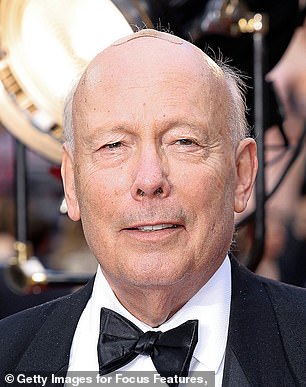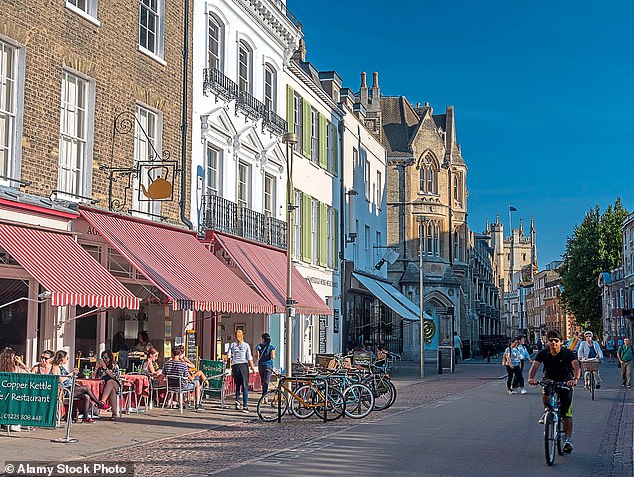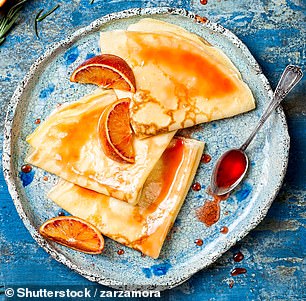My first real food memory was when I was 13, on a French exchange in the Dordogne. They had a proper cook, called Germaine, who was governed by the grandfather. Every morning he’d go into the kitchen and have this more or less knock-down fight with the cook. They would scream at each other, then arrive at the day’s menu. I couldn’t believe it. I remember writing to my mother, saying I had a sort of yellow sauce with the cold chicken. ‘It’s mayonnaise,’ she explained. Well, it was nothing like any mayonnaise I’d ever had. I came back with negligible French, but a completely transformed palate.

Julian Fellowes
My mother, on the whole, saw cooking as something she was obliged to do rather than facing it with much enthusiasm. For her, anything tasted good if she hadn’t cooked it. She wasn’t a bad cook – English 1960s foods, lots of lamb stews and the odd soufflé. I was very fond of crêpes suzette. But I always think [my wife] Emma is quite lucky in having a husband who isn’t particularly nostalgic for his mother’s cooking.
There was a rather profligate cousin of my father who had many mistresses and much interest in food. He took over my food education when I got back to England [from France] and he used to take me to The Guinea in Mayfair. I don’t think my parents were frightfully interested in food. I mean, my father did like it when something good turned up on the table. But, of course, he didn’t expect to contribute to that at all. He hardly knew where the kitchen was.
Boarding-school food at Ampleforth was horrible. I could never understand how the meat always had some piece of tube or gristle or the inner workings of the animal lying there, expecting you to swallow it. I found that rather trying.
Cambridge was not a gastronomic delight, but you could go out provided you had the money. They were by no means marvellous restaurants, but they were better than school. The idea that in the evening a pleasant experience was coming your way really got rooted at Cambridge.
We have a cook these days, although my wife does it occasionally. She’s good at it – better than my mother – but only cooks when she’s interested. That’s the best way to do it.

Julian first began eating out while at Cambridge
I used to have a huge appetite but I’ve lost it, and I’m really sorry that it’s gone. I tend to pick a bit more carefully, eating mousses and sandwich fillers rather than some great joint of beef. I like roast chicken with bacon and sausages – I still enjoy that sort of English cooking, which is very straightforward.
I do like Christmas food, especially the pudding. I always feel a bit sad when people say, ‘Oh, we’re having cod this year.’ No, I don’t want cod, I want Christmas turkey.

Julian would have Crêpes Suzette at his last supper
I loathe sushi. Raw fish makes me want to reach for my gun.
My comfort food is simple English stuff. Or a Marks & Spencer smoked-salmon and cream-cheese dip with lettuce. I still enjoy the taste of good food, and it still gives me a lot of pleasure. As you get older, there’s a gradual removal of things that give you pleasure, until finally there’s virtually nothing that gives you any pleasure at all. I feel that food is hanging in there. Food is really one of the last to go.
I always have Champagne in my fridge because I think sometimes you want to cheer people up, and sometimes you want to cheer yourself up. I have butter because I love butter. And I’ll always have some eggs. I like a boiled egg.
If a benevolent god gave me my appetite back, my last supper would be roast chicken with cauliflower in white sauce and all the rest of the bits. For pudding, crêpes suzette. I feel I owe something to crêpes suzette over the years.
The third season of Julian’s drama The Gilded Age is on Sky and Now from tomorrow












